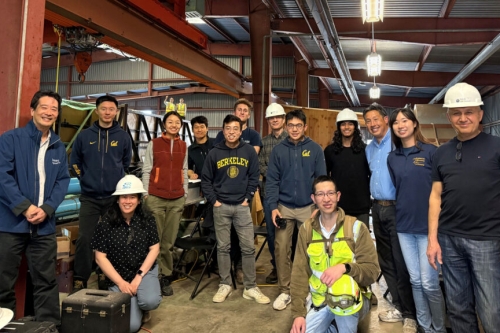Researchers at the Center for Smart Infrastructure (CSI) testing lab evaluated a jointed pipe system under conditions simulating extreme scenarios, such as landslides or earthquake fault ruptures. The focus of the assessment was a 42-foot-long, 8-inch-diameter ductile iron pipe system designed to resist earthquakes, outfitted with advanced distributed fiber optic sensors for data collection.
The pipe system was pressurized with water and buried in soil before being subjected to soil movement through a specially engineered split-basin interaction testing apparatus, reconfigured from the original design at Cornell University. This test emulated a jointed pipe system crossing a right-lateral strike-slip fault, akin to the Hayward Fault.
By mimicking the stresses and strains that may arise during landslides or earthquakes, the engineering researchers seek to enhance their understanding of the forces and limitations affecting the pipe’s joints and overall structure, providing insights into its performance and potential weaknesses in extreme situations. The testing was carried out in partnership with the East Bay Municipal Utility District and U.S. Pipe.
Check out the full news release on the Berkeley Center for Smart Infrastructure website.

